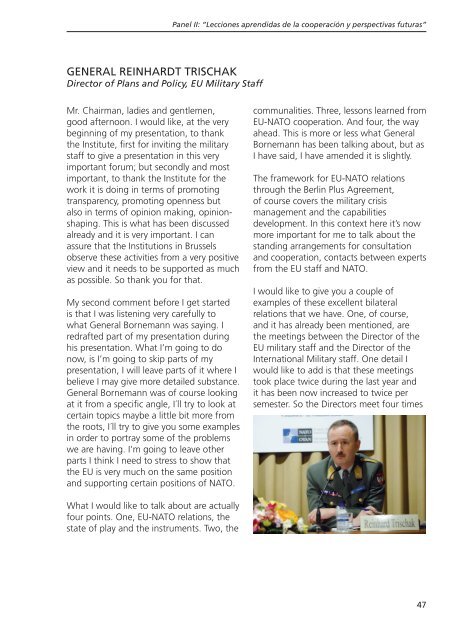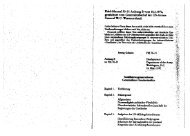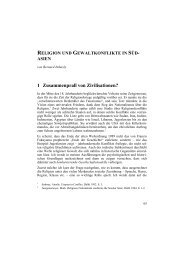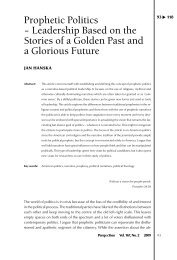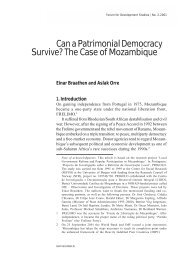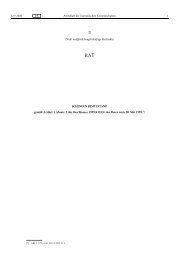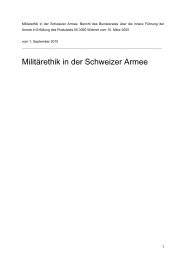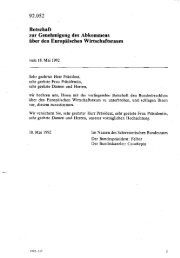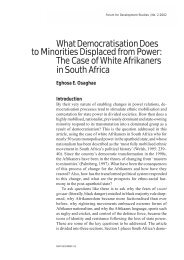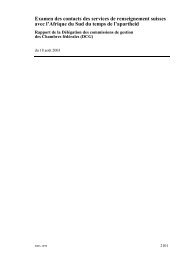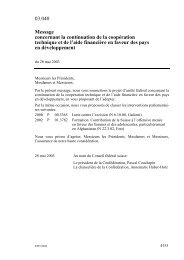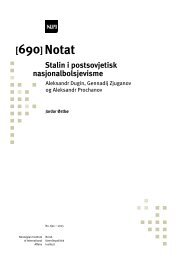El Futuro de la cooperación Unión European - OTAN
El Futuro de la cooperación Unión European - OTAN
El Futuro de la cooperación Unión European - OTAN
You also want an ePaper? Increase the reach of your titles
YUMPU automatically turns print PDFs into web optimized ePapers that Google loves.
GENERAL REINHARDT TRISCHAK<br />
Director of P<strong>la</strong>ns and Policy, EU Military Staff<br />
Mr. Chairman, <strong>la</strong>dies and gentlemen,<br />
good afternoon. I would like, at the very<br />
beginning of my presentation, to thank<br />
the Institute, fi rst for inviting the military<br />
staff to give a presentation in this very<br />
important forum; but secondly and most<br />
important, to thank the Institute for the<br />
work it is doing in terms of promoting<br />
transparency, promoting openness but<br />
also in terms of opinion making, opinionshaping.<br />
This is what has been discussed<br />
already and it is very important. I can<br />
assure that the Institutions in Brussels<br />
observe these activities from a very positive<br />
view and it needs to be supported as much<br />
as possible. So thank you for that.<br />
My second comment before I get started<br />
is that I was listening very carefully to<br />
what General Bornemann was saying. I<br />
redrafted part of my presentation during<br />
his presentation. What I’m going to do<br />
now, is I’m going to skip parts of my<br />
presentation, I will leave parts of it where I<br />
believe I may give more <strong>de</strong>tailed substance.<br />
General Bornemann was of course looking<br />
at it from a specifi c angle, I´ll try to look at<br />
certain topics maybe a little bit more from<br />
the roots, I´ll try to give you some examples<br />
in or<strong>de</strong>r to portray some of the problems<br />
we are having. I’m going to leave other<br />
parts I think I need to stress to show that<br />
the EU is very much on the same position<br />
and supporting certain positions of NATO.<br />
What I would like to talk about are actually<br />
four points. One, EU-NATO re<strong>la</strong>tions, the<br />
state of p<strong>la</strong>y and the instruments. Two, the<br />
Panel II: “Lecciones aprendidas <strong>de</strong> <strong>la</strong> <strong>cooperación</strong> y perspectivas futuras”<br />
communalities. Three, lessons learned from<br />
EU-NATO cooperation. And four, the way<br />
ahead. This is more or less what General<br />
Bornemann has been talking about, but as<br />
I have said, I have amen<strong>de</strong>d it is slightly.<br />
The framework for EU-NATO re<strong>la</strong>tions<br />
through the Berlin Plus Agreement,<br />
of course covers the military crisis<br />
management and the capabilities<br />
<strong>de</strong>velopment. In this context here it’s now<br />
more important for me to talk about the<br />
standing arrangements for consultation<br />
and cooperation, contacts between experts<br />
from the EU staff and NATO.<br />
I would like to give you a couple of<br />
examples of these excellent bi<strong>la</strong>teral<br />
re<strong>la</strong>tions that we have. One, of course,<br />
and it has already been mentioned, are<br />
the meetings between the Director of the<br />
EU military staff and the Director of the<br />
International Military staff. One <strong>de</strong>tail I<br />
would like to add is that these meetings<br />
took p<strong>la</strong>ce twice during the <strong>la</strong>st year and<br />
it has been now increased to twice per<br />
semester. So the Directors meet four times<br />
47


